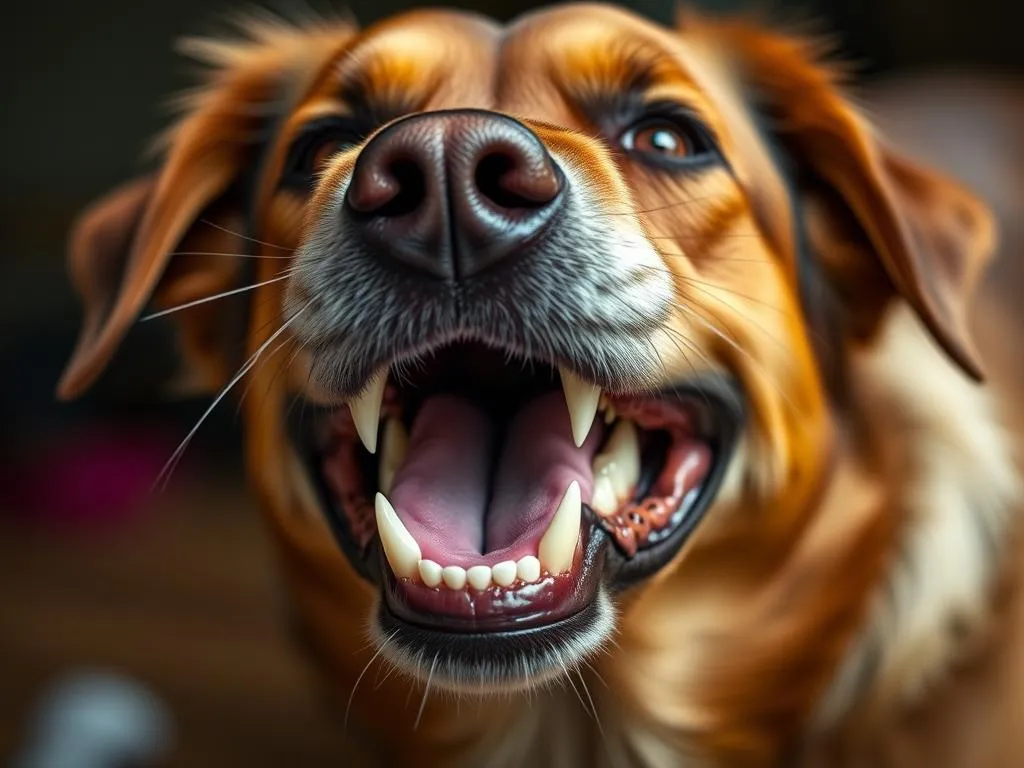
Maintaining your dog’s health is a multifaceted responsibility that goes beyond just regular vet visits and vaccinations. Among the many aspects of canine care, dental health is often overlooked, yet it’s crucial for your dog’s overall well-being. Just like humans, dogs have teeth that require care and attention, and understanding how many teeth dogs have can inform you about their health needs.
Understanding Dog Anatomy
Overview of Dog Teeth
Dogs have a unique dental structure that serves various purposes. Their teeth can be categorized into four main types:
- Incisors: These are the small teeth at the front of the mouth, used for nibbling and grasping food.
- Canines: The pointed teeth located next to the incisors, which help in tearing food.
- Premolars: Positioned behind the canines, they are used for grinding and chewing.
- Molars: These are located at the back of the mouth and are primarily used for grinding food into smaller pieces.
The arrangement and function of these teeth are essential for a dog’s diet and natural behavior, influencing everything from their ability to chew food properly to their play behaviors.
Number of Teeth in Dogs
When it comes to how many teeth dogs have, the answer varies between puppies and adult dogs.
Puppy Teeth
Puppies are born without teeth but develop a total of 28 baby teeth (also known as deciduous teeth). These teeth usually begin to emerge around three weeks of age and start to shed around six months. The timeline for puppy teeth eruption is as follows:
- 4-6 weeks: Baby teeth begin to erupt.
- 6 months: Most baby teeth fall out, making way for adult teeth.
Adult Teeth
As dogs transition from puppies to adults, they develop a total of 42 adult teeth. The timeline for this transition is typically:
- 4-6 months: The adult teeth start to replace baby teeth.
- 6-8 months: Most dogs have completed this transition, boasting a full set of adult teeth.
Understanding the number of teeth your dog has, and at what stage, is essential for effective dental care.
Importance of Dental Health in Dogs
Common Dental Issues
Just like humans, dogs are susceptible to various dental problems. Some common issues include:
- Gingivitis: Inflammation of the gums, often caused by plaque buildup.
- Periodontal Disease: A more severe condition that can lead to tooth loss and is associated with bacteria entering the bloodstream.
- Tooth Loss: This can occur due to severe dental disease or injury.
Recognizing the signs of these issues early can help prevent significant health problems down the line.
Impact on Overall Health
The connection between dental health and overall health is profound. Poor dental hygiene can lead to systemic issues, including:
- Heart Disease: Bacteria from dental infections can enter the bloodstream and affect the heart.
- Kidney Disease: Infected teeth can lead to chronic health problems affecting the kidneys.
- Liver Disease: Just like the heart and kidneys, the liver can also be affected by bacteria from dental infections.
Statistics show that over 80% of dogs exhibit signs of dental disease by the age of three. This highlights the importance of proper dental care throughout a dog’s life.
Maintaining Your Dog’s Dental Health
Regular Dental Check-Ups
Routine veterinary dental check-ups are vital for maintaining your dog’s dental health. During these visits, a veterinarian can assess your dog’s teeth and gums, perform necessary cleanings, and identify potential issues before they escalate. It is generally recommended that dogs have a dental check-up at least once a year, although some dogs may require more frequent visits based on their dental health.
At-Home Dental Care
At-home dental care is essential for maintaining your dog’s oral hygiene. Here are some techniques and products that can help:
- Brushing: Regularly brushing your dog’s teeth is one of the best ways to prevent dental disease. Use a toothbrush and toothpaste specifically designed for dogs. Aim for brushing at least two to three times a week.
- Dental Chews: These can help reduce plaque and tartar buildup while satisfying your dog’s natural urge to chew.
- Water Additives: These products can be added to your dog’s water to help reduce bacteria in the mouth.
Diet and Nutrition
What your dog eats plays a significant role in their dental health. Some foods can promote oral health, while others can contribute to dental issues.
- Dry Kibble: This can help scrape away plaque as your dog chews.
- Raw Vegetables: Carrots and apples can provide a natural way to help clean teeth.
- Avoid Sugary Foods: Just like humans, sugary foods can lead to plaque buildup and dental decay.
Being mindful of your dog’s diet is an essential aspect of maintaining their dental health.
Recognizing Dental Problems
Behavioral Signs to Watch For
It’s important to pay attention to your dog’s behavior, as changes can indicate dental problems. Some signs to look out for include:
- Changes in Eating Habits: If your dog suddenly avoids hard food or has difficulty eating, it may be a sign of dental discomfort.
- Bad Breath: While some dog breeds naturally have stronger odors, persistent bad breath can indicate oral health issues.
Visual Signs of Dental Problems
Regularly examining your dog’s mouth can help you catch dental issues early. Look for:
- Red or Swollen Gums: This could indicate gingivitis or periodontal disease.
- Loose Teeth: Teeth that are loose or missing may point to dental disease.
- Excessive Tartar Buildup: A significant amount of tartar can affect your dog’s oral health.
If you notice any of these signs, it’s crucial to seek veterinary care promptly.
Professional Dental Treatments
Overview of Veterinary Dental Procedures
If your dog requires dental treatment, there are various procedures your veterinarian might recommend:
- Dental Cleanings: These typically include scaling to remove plaque and tartar, followed by polishing.
- Extractions: In cases of severe dental disease, tooth extraction may be necessary.
Anesthesia is commonly used during these procedures to ensure the comfort and safety of your dog.
Cost of Dental Care
Dental care can be an investment, with the average cost of a dental cleaning ranging from $300 to $800, depending on the complexity of the procedure. It is important to budget for dental health care as part of your dog’s overall health plan.
Conclusion
Understanding how many teeth dogs have and the importance of dental health is essential for responsible dog ownership. By maintaining your dog’s dental hygiene through regular check-ups, at-home care, and proper nutrition, you can significantly enhance their quality of life.
Remember that dental health is not just about keeping those pearly whites clean; it’s a crucial component of your dog’s overall well-being. Scheduling regular veterinary check-ups and engaging in consistent at-home dental care will ensure that your furry friend stays happy and healthy for years to come.
FAQs
How many teeth do puppies have?
Puppies have a total of 28 baby teeth that emerge around three weeks of age.
How many teeth do adult dogs have?
Adult dogs typically have 42 teeth.
How often should I brush my dog’s teeth?
Aim to brush your dog’s teeth two to three times a week to maintain good dental health.
What are the signs of dental disease in dogs?
Signs include bad breath, swollen gums, changes in eating habits, and excessive tartar buildup.
How often should my dog have a dental check-up?
It’s recommended that dogs have a dental check-up at least once a year, but some may require more frequent visits based on their dental health.









